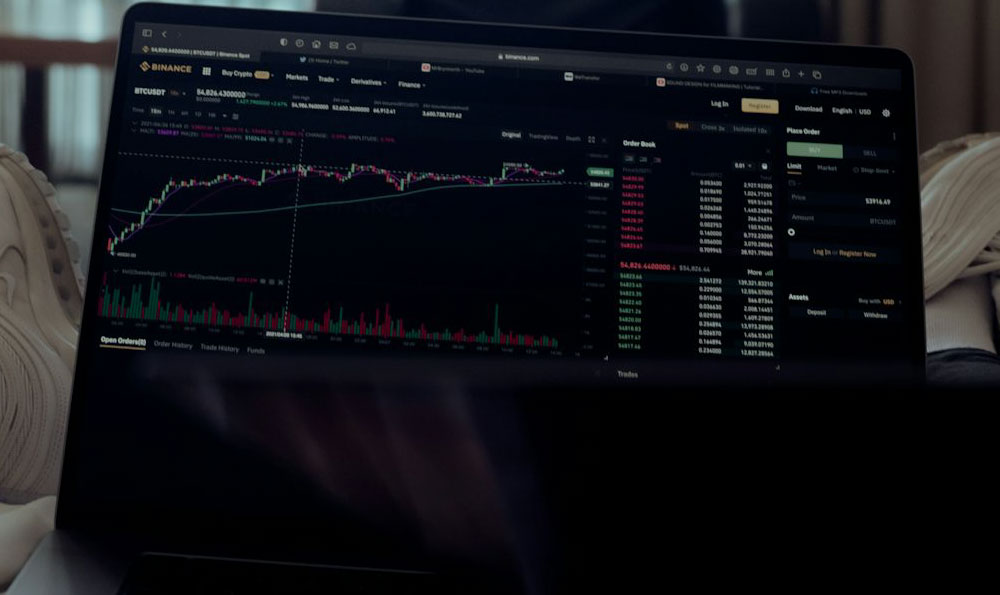
The allure of cryptocurrency is undeniable, a digital gold rush promising rapid wealth accumulation. However, navigating this volatile landscape requires more than just a gambler's spirit; it demands a calculated approach, a deep understanding of market dynamics, and a commitment to continuous learning. Earning profit in the crypto world is a multifaceted endeavor, dependent on your risk tolerance, investment timeline, and level of expertise.
One of the most common entry points is spot trading. This involves buying cryptocurrencies at a certain price and selling them later at a higher price. The profit is simply the difference between the buying and selling prices, minus any transaction fees. While seemingly straightforward, successful spot trading requires diligent market analysis. This includes studying price charts, identifying trends, and understanding the factors that influence cryptocurrency values, such as news events, regulatory changes, and technological advancements. Technical analysis, involving the use of indicators like moving averages, RSI (Relative Strength Index), and Fibonacci retracements, can help predict potential price movements. Fundamental analysis, on the other hand, assesses the intrinsic value of a cryptocurrency by examining its underlying technology, adoption rate, team, and overall ecosystem. Both approaches are crucial for informed decision-making. However, be prepared for volatility. Prices can fluctuate wildly, and overnight fortunes can just as easily vanish. Implementing stop-loss orders, which automatically sell your assets when they reach a predetermined price, is a crucial risk management strategy in spot trading.
Long-term holding (HODLing) is another popular strategy. This entails buying cryptocurrencies with the intention of holding them for an extended period, often years, regardless of short-term market fluctuations. HODLers believe that the long-term value of certain cryptocurrencies will appreciate significantly as the technology matures and adoption increases. This strategy is less demanding in terms of daily market monitoring but requires a strong conviction in the chosen cryptocurrency's long-term potential. Thorough research is paramount when selecting cryptocurrencies for long-term holding. Consider projects with strong fundamentals, innovative technology, a dedicated team, and a growing user base. Bitcoin and Ethereum are often considered cornerstones of long-term crypto portfolios due to their established track records and wide adoption. However, diversification is still key. Don't put all your eggs in one basket; spread your investments across multiple promising projects to mitigate risk.

Staking offers a passive income stream for cryptocurrency holders. By staking your cryptocurrencies, you are essentially locking them up to support the operation of a blockchain network. In return, you receive rewards in the form of additional cryptocurrency. The amount of rewards varies depending on the cryptocurrency, the staking period, and the network's requirements. Staking is a relatively low-risk way to earn passive income, but it does require you to hold specific cryptocurrencies that support staking. Research different staking platforms and cryptocurrencies to find the best options for your portfolio. Consider the lock-up period and the associated risks, such as potential penalties for unstaking early.
Yield farming takes passive income generation to another level. It involves lending or borrowing cryptocurrencies on decentralized finance (DeFi) platforms to earn interest or rewards. Yield farming can be highly profitable, but it also comes with higher risks. These risks include impermanent loss (the temporary loss of value when providing liquidity to a pool), smart contract vulnerabilities, and the potential for rug pulls (where developers abandon a project and run away with investors' funds). Thoroughly research DeFi platforms and understand the associated risks before engaging in yield farming. Start with small amounts and gradually increase your investment as you gain experience and confidence.
Trading futures and options provides the potential for amplified profits, but also dramatically increased risk. These are derivative instruments that allow you to speculate on the future price of a cryptocurrency without actually owning it. Futures contracts obligate you to buy or sell a cryptocurrency at a predetermined price and date, while options contracts give you the right, but not the obligation, to do so. Trading futures and options requires a high level of understanding of market dynamics and risk management. The potential for losses is significantly higher than in spot trading, and you can lose more than your initial investment. These instruments are generally not recommended for beginners.
Participating in Initial Coin Offerings (ICOs) or Initial DEX Offerings (IDOs) can offer the opportunity to invest in promising new projects at an early stage. However, the vast majority of ICOs and IDOs fail, and many are outright scams. Thoroughly research the project, the team, and the underlying technology before investing in an ICO or IDO. Look for projects with a clear vision, a solid team, a well-defined roadmap, and a strong community. Be prepared to lose your entire investment, as the risk of investing in early-stage projects is very high.
Beyond these specific strategies, cultivating a disciplined mindset is paramount. Avoid emotional decision-making driven by fear or greed. Stick to your pre-defined investment plan and resist the urge to chase short-term gains. Continuously educate yourself about the cryptocurrency market and stay up-to-date on the latest trends and developments. Diversification, as mentioned earlier, is your shield against unforeseen market downturns. Allocate your capital across various cryptocurrencies and investment strategies to minimize risk.
Finally, security is of utmost importance. Protect your cryptocurrency holdings by using strong passwords, enabling two-factor authentication, and storing your private keys securely in a hardware wallet. Be wary of phishing scams and other fraudulent activities. Never share your private keys with anyone, and always double-check the address before sending cryptocurrency. The crypto space is a lucrative but also a treacherous one; vigilance is your greatest asset. Profitability in the crypto world is not about getting rich quick; it's about adopting a long-term perspective, managing risk effectively, and continuously learning. Remember, due diligence and a cautious approach are essential for navigating this exciting but volatile landscape and achieving sustainable financial growth.





